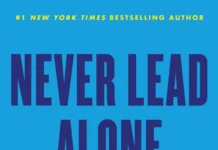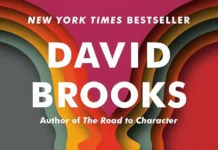by Dianna Brodine, managing editor
Plastics Business
As I sat down to work on this issue’s Booklist, I was distracted by an advertisement for an accessory that would make it easier for me to manage my planner, notebooks and other workday necessities. I went back to using a paper planner a few years ago… partially as a strategy to gather all of my sticky notes in one location. I’m an obsessive list maker and goal setter, and I’m fascinated by strategies for increased productivity and organization. For me, the combination of a paper planner and a blank notebook has added an element of organization to my hectic work life that was much needed.
It’s been a while since I’ve looked for newer books on the topic and, after a little research, four stood out – including a new release from the man who financed Google.
Measure What Matters: How Google, Bono, and the Gates Foundation Rock the World with OKRs
Author: John Doerr
Released: April 24, 2018
In the fall of 1999, venture capitalist John Doerr met with the founders of a start-up whom he’d just given $12.5 million. Larry Page and Sergey Brin had amazing technology, entrepreneurial energy and sky-high ambitions, but no real business plan. For Google to change the world, Page and Brin had to learn how to make tough choices on priorities while keeping their team on track. They’d have to know when to pull the plug on losing propositions, to fail fast. And they needed timely, relevant data to track their progress – to measure what mattered.
Doerr taught them about a proven approach to operating excellence: Objectives and Key Results. In this goal-setting system, objectives define what we seek to achieve; key results are how those top-priority goals will be attained with specific, measurable actions within a set time frame. Everyone’s goals, from entry level to CEO, are transparent to the entire organization. In Measure What Matters, Doerr shares first-person, behind-the-scenes case studies, with narrators including Bono and Bill Gates, to demonstrate the focus, agility, and explosive growth that OKRs have spurred at so many great organizations.
Deep Work: Rules for Focused Success in a Distracted World
Author: Cal Newport
Released: Jan. 5, 2016
Deep work is the ability to focus without distraction on a cognitively demanding task. It’s a skill that allows you to quickly master complicated information and produce better results in less time. Deep work will make you better at what you do and provide the sense of true fulfillment that comes from craftsmanship. In short, deep work is like a super power in our increasingly competitive twenty-first century economy. And yet, most people have lost the ability to go deep spending their days instead in a frantic blur of email and social media, not even realizing there’s a better way.
In Deep Work, author and professor Cal Newport flips the narrative on impact in a connected age. Instead of arguing distraction is bad, he instead celebrates the power of its opposite. Dividing this book into two parts, he first makes the case that in almost any profession, cultivating a deep work ethic will produce massive benefits. He then presents a rigorous training regimen, presented as a series of four “rules,” for transforming your mind and habits to support this skill.
A mix of cultural criticism and actionable advice, Deep Work takes the reader on a journey through memorable stories – from Carl Jung building a stone tower in the woods to focus his mind to a social media pioneer buying a round-trip business class ticket to Tokyo to write a book free from distraction in the air – and no-nonsense advice. Deep Work is an indispensable guide to anyone seeking focused success in a distracted world.
Principles: Life and Work
Author: Ray Dalio
Released: Sept. 19, 2017
In 1975, Ray Dalio founded an investment firm out of his two-bedroom apartment. Forty years later, Bridgewater has made more money for its clients than any other hedge fund in history. Along the way, Dalio discovered a set of unique principles that have led to Bridgewater’s exceptionally effective culture, which he describes as “an idea meritocracy that strives to achieve meaningful work and meaningful relationships through radical transparency.”
In Principles, Dalio shares what he’s learned over the course of his remarkable career. He argues that life, management, economics and investing can all be systemized into rules and understood like machines. The book’s hundreds of practical lessons include Dalio laying out the most effective ways for individuals and organizations to make decisions, approach challenges and build strong teams. He also describes the innovative tools the firm uses to bring an idea meritocracy to life, such as creating “baseball cards” for all employees that distill their strengths and weaknesses, and employing computerized decision-making systems to make believability-weighted decisions. While the book brims with novel ideas for organizations and institutions, Principles also offers a clear, straightforward approach to decision-making that Dalio believes anyone can apply, no matter what they’re seeking to achieve.
Traction: Get a Grip on Your Business
Author: Gino Wickman
Released: April 3, 2012
Do you have a grip on your business, or does your business have a grip on you? All entrepreneurs and business leaders face similar frustrations personnel conflict, profit woes and inadequate growth. Decisions never seem to get made, or, once made, fail to be properly implemented. But, there is a solution. It’s not complicated or theoretical. Based on years of real-world implementation in more than 100 companies, the Entrepreneurial Operating System® is a practical method for achieving the business success you have always envisioned.
In Traction, you’ll learn the secrets of strengthening the six key components of your business. You’ll discover simple yet powerful ways to run your company that will give you and your leadership team more focus, more growth and more enjoyment. Successful companies are applying Traction every day to run profitable, frustration-free businesses and you can, too.








